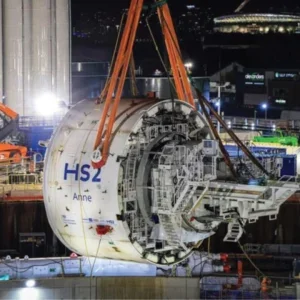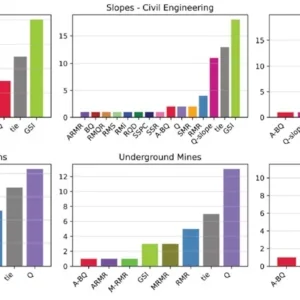In September last year, John Bartlett was awarded the Sir Frank Whittle Medal. The medal is awarded to an engineer whose sustained achievements have had a profound impact upon their engineering discipline.
The award is apt, as Bartlett invented the bentonite tunnelling machine, the precursor to all of the world’s TBMs for loose, sandy soils.
Bartlett patented the machine in 1964 and the subsequent 55 years have seen the liberation of almost all geological conditions for infrastructure development.
The slurry system also removed the need for workers to dig by hand under compressed air while tunnelling in loose soils, which is a clear safety milestone for the industry.
The Royal Academy of Engineering, which issues the award, said of the impact of the invention, “John Bartlett’s Bentonite Tunnelling Machine became the prototype for a whole new class of slurry tunnelling machines and by the end of the 1970s more than 1,000 had been used worldwide.”
Lord Robert Mair, president of the Institution of Civil Engineers said, “There can be no doubt that a major revolution in the worldwide tunnelling industry was triggered by John Bartlett’s invention of the Bentonite Tunnelling Machine. It has enabled a rapid increase in tunnel construction around the world, particularly in urban areas, for water supply, sanitation and transport – with remarkable benefi t to humanity.”
Writing to Bartlett on behalf of the British Tunnelling Society, chair Ivor Thomas commented, “Your invention of the slurry machine and its subsequent development has made a tremendous difference to how and where we can tunnel. Slurry tunnelling has allowed us to develop tunnels in geology that would previously have been either very diffi cult and costly or impossible.”
In response to the award of the medal and the letters of congratulation he has received, Bartlett wrote that he views them “as very generous leaving presents; they certainly help one to enjoy a contented old age”.
Finally, I would like to draw your attention to an interview with him, on his life’s work at his home in London was not an opportunity we were going to miss.






